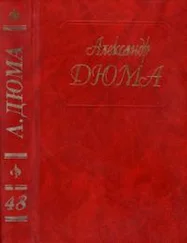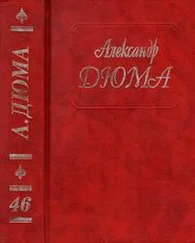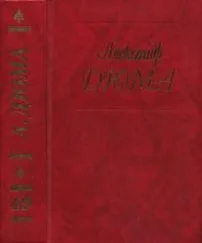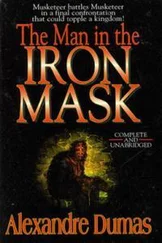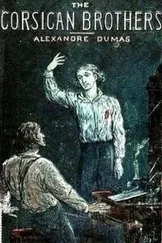Александр Дюма - The Conspirators
Здесь есть возможность читать онлайн «Александр Дюма - The Conspirators» весь текст электронной книги совершенно бесплатно (целиком полную версию без сокращений). В некоторых случаях можно слушать аудио, скачать через торрент в формате fb2 и присутствует краткое содержание. Год выпуска: 2014, Издательство: epubBooks Classics, Жанр: Историческая проза, на английском языке. Описание произведения, (предисловие) а так же отзывы посетителей доступны на портале библиотеки ЛибКат.
- Название:The Conspirators
- Автор:
- Издательство:epubBooks Classics
- Жанр:
- Год:2014
- ISBN:нет данных
- Рейтинг книги:3 / 5. Голосов: 1
-
Избранное:Добавить в избранное
- Отзывы:
-
Ваша оценка:
- 60
- 1
- 2
- 3
- 4
- 5
The Conspirators: краткое содержание, описание и аннотация
Предлагаем к чтению аннотацию, описание, краткое содержание или предисловие (зависит от того, что написал сам автор книги «The Conspirators»). Если вы не нашли необходимую информацию о книге — напишите в комментариях, мы постараемся отыскать её.
The Conspirators — читать онлайн бесплатно полную книгу (весь текст) целиком
Ниже представлен текст книги, разбитый по страницам. Система сохранения места последней прочитанной страницы, позволяет с удобством читать онлайн бесплатно книгу «The Conspirators», без необходимости каждый раз заново искать на чём Вы остановились. Поставьте закладку, и сможете в любой момент перейти на страницу, на которой закончили чтение.
Интервал:
Закладка:
"Monsieur," answered the footman modestly, "I am called Bourguignon, and here is my comrade Comtois, whose turn for devotion will come to–morrow, and who, when the moment shall have arrived, will not be behindhand. Comtois, my friend, a slice of that pheasant, and a glass of champagne. Do you not see that, in order to reassure monsieur completely, I must taste everything; it is a severe test, I know, but where would be the merit of being an honest man if it did not sometimes bring trials like the present? To your health, Monsieur Buvat."
"Heaven preserve yours, Monsieur Bourguignon."
"Now, Comtois, hand me the dessert, so that I may leave no doubt on Monsieur Buvat's mind."
"Monsieur Bourguignon, I beg you to believe that, if I had any, they are completely dissipated."
"No, monsieur, no, I beg your pardon, you still have some. Comtois, my friend, now the hot coffee, very hot; I wish to drink it exactly as monsieur would have done, and I presume it is thus that monsieur likes it."
"Boiling, monsieur, boiling," answered Buvat, bowing.
"Oh!" said Bourguignon, sipping his coffee, and raising his eyes blissfully to the ceiling, "you are right, monsieur. It is only so that coffee is good—half–cold it is a very second–rate beverage. This, I may say, is excellent. Comtois, my friend, receive my compliments, you wait admirably; now help me to take away the table. You ought to know that there is nothing more unpleasant than the smell of wines and viands to those who are not hungry nor thirsty. Monsieur," continued Bourguignon, stepping toward the door, which he had carefully shut during the repast, and which he opened while his companion pushed the table before him, "monsieur, if you have need of anything, you have three bells, one at the head of your bed, and two at the mantelpiece. Those at the fireplace are for us, that at the bed for your valet–de–chambre."
"Thank you, monsieur," said Buvat, "you are too good. I do not wish to disturb any one."
"Do not trouble yourself about that, monsieur—monseigneur desires that you should make yourself at home."
"Monseigneur is very polite."
"Does monsieur require anything else?"
"Nothing more, my friend, nothing more," said Buvat, touched by so much devotion; "nothing, except to express my gratitude."
"I have only done my duty, monsieur," answered Bourguignon, modestly, bowing for the last time, and shutting the door.
"Ma foi!" said Buvat, following Bourguignon with his eyes, "it must be allowed that some proverbs are great liars. One says, 'As insolent as a lackey,' and yet here is an individual practicing that calling, who nevertheless could not possibly be more polite. I shall never believe in proverbs again, or rather, I shall make a difference between them."
And making himself this promise, Buvat found himself alone.
Nothing makes a man so hungry as the sight of a good dinner; that which had just been eaten under the good man's very eyes surpassed in luxury everything that he had ever dreamed of, and he began—influenced by the decided calls of his stomach—to reproach himself for his too great defiance of his persecutors; but it was too late. Buvat, it is true, might have rung for Monsieur Bourguignon, and requested a second dinner, but he was of too timid a character for that, and the result was, that he had to search among his stock of proverbs for the most consoling, and having found, between his situation and the proverb, "He who sleeps dines," an analogy which seemed to him most direct, he resolved to make use of it, and, as he could not dine, to endeavor at least to sleep.
But, at the moment of taking this resolution, Buvat found himself assailed by new fears. Could they not profit by his sleep to dispatch him? The night is the time of ambushes—he had often heard his mother tell of beds which, by the lowering of their canopies, smothered the unfortunate sleeper; of beds which sank through a trap, so softly as not to wake the occupant; finally, of secret doors opening in panels, and even in furniture, to give entrance to assassins. This luxuriant dinner, these rich wines, had they not been sent him to insure a sounder sleep? All this was possible, nay, probable, and Buvat, who felt the instinct of self–preservation in the highest degree, took his candle, and commenced a most minute investigation. After having opened the doors of all the cupboards, sounded all the paneling, Buvat had gone down on his hands and feet, and was stretching his head timidly under the bed, when he thought he heard steps behind him. The position in which he found himself did not permit him to act on the defensive; he therefore remained motionless, and waited with a beating heart. After a few seconds of solemn silence, which filled Buvat with vague alarms, a voice said:
"Your pardon; but is not monsieur looking for his nightcap?"
Buvat was discovered—there was no means of escaping the danger, if danger there was. He therefore drew his head from under the bed, took his candle, and remaining on his knees, as a humble and beseeching posture, he turned toward the individual who had just addressed him, and found himself face to face with a man dressed in black, and carrying, folded up on his arm, many articles, which Buvat recognized as human clothes.
"Yes, monsieur," said Buvat, seizing the opening which was offered to him, with a presence of mind on which he secretly congratulated himself; "is that search forbidden?"
"Why did not monsieur, instead of troubling himself, ring the bell? I have the honor to be appointed monsieur's valet–de–chambre, and I have brought him a night–cap and night–shirt."
And with these words the valet–de–chambre spread out on the bed a night–shirt, embroidered with flowers, a cap of the finest lawn, and a rose–colored ribbon. Buvat, still on his knees, regarded him with the greatest astonishment.
"Now," said the valet–de–chambre, "will monsieur allow me to help him to undress?"
"No, monsieur, no," said Buvat, accompanying the refusal with the sweetest smile he could assume. "No, I am accustomed to undress myself. I thank you, monsieur."
The valet–de–chambre retired, and Buvat remained alone.
As the inspection of the room was completed, and as his increasing hunger rendered sleep more necessary, Buvat began to undress, sighing; placed—in order not to be left in the dark—a candle on the corner of the chimney–piece, and sprang, with a groan, into the softest and warmest bed he had ever slept on.
"The bed is not sleep," is an axiom which Buvat might, from experience, have added to the list of his true proverbs. Either from fear or hunger, Buvat passed a very disturbed night, and it was not till near morning that he fell asleep; even then his slumbers were peopled with the most terrible visions and nightmares. He was just waking from a dream that he had been poisoned by a leg of mutton, when the valet–de–chambre entered, and asked at what time he would like breakfast.
Buvat was not in the habit of breakfasting in bed, so he rose quickly, and dressed in haste; he had just finished, when Messieurs Bourguignon and Comtois entered, bringing the breakfast, as the day before they had brought the dinner.
Then took place a second rehearsal of the scene which we have before related, with the exception that now it was Monsieur Comtois who ate and Monsieur Bourguignon who waited; but when it came to the coffee, and Buvat, who had taken nothing for twenty–four hours, saw his dearly–loved beverage, after having passed from the silver coffee–pot into the porcelain cup, pass into the cavernous mouth of Monsieur Comtois, he could hold out no longer, and declared that his stomach demanded to be amused with something, and that, consequently, he desired that they would leave him the coffee and a roll. This declaration appeared to disturb the devotion of Monsieur Comtois, who was nevertheless obliged to satisfy himself with one cup of the odoriferous liquid, which, together with a roll and the sugar, was placed on a little table, while the two scamps carried off the rest of the feast, laughing in their sleeves.
Читать дальшеИнтервал:
Закладка:
Похожие книги на «The Conspirators»
Представляем Вашему вниманию похожие книги на «The Conspirators» списком для выбора. Мы отобрали схожую по названию и смыслу литературу в надежде предоставить читателям больше вариантов отыскать новые, интересные, ещё непрочитанные произведения.
Обсуждение, отзывы о книге «The Conspirators» и просто собственные мнения читателей. Оставьте ваши комментарии, напишите, что Вы думаете о произведении, его смысле или главных героях. Укажите что конкретно понравилось, а что нет, и почему Вы так считаете.


